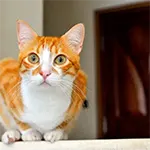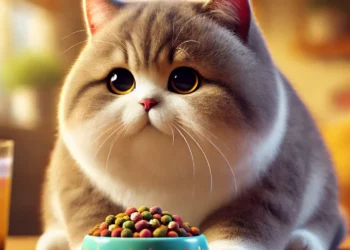Origin and History
Domestic Short Hair (DSH) cats represent the most common and diverse group of domesticated cats. Unlike specific cat breeds, DSH cats do not have a singular origin story but rather encompass a broad range of genetic backgrounds, having evolved through natural selection or informal human breeding over centuries. These cats are the result of spontaneous, natural breeding without human intervention to select for specific breed characteristics. The term “Domestic Short Hair” is used primarily in the United States to describe cats with a short coat, no pedigree, and a mixed ancestry. DSH cats can be found worldwide and have adapted to various environments alongside human societies.
Appearance
Domestic Short Hair cats exhibit a vast array of colors, patterns, and body types due to their mixed genetic heritage. Their short coats can be solid, tabby, tortoiseshell, calico, and more, with no two DSH cats looking exactly alike. Their body size and shape can range from slender and athletic to stocky and robust, reflecting the diverse gene pool from which they descend.
The defining characteristic of DSH cats is their short, dense coat, which is generally easy to care for and does not require as much grooming as longer-haired varieties. Their facial features, ear size, and tail length can also vary widely, making each DSH cat unique.
Personality and Temperament
The personality of Domestic Short Hair cats can be as varied as their appearance, encompassing a wide range of traits and behaviors. Generally, DSH cats are adaptable, resilient, and can thrive in various living situations. They can be affectionate and sociable, enjoying human companionship, or more independent, content with spending time alone.
Many DSH cats are playful and curious, with a keen interest in exploring their surroundings. They can be excellent hunters, a trait inherited from their ancestors. The temperament of a DSH cat can depend on factors such as genetics, upbringing, and socialization, offering potential owners the opportunity to find a cat that matches their lifestyle and personality.
Health
Domestic Short Hair cats are generally healthy, with the diverse genetic pool contributing to a robust constitution and fewer inherited health problems than some purebred cats. Their short coats are less prone to matting and require minimal grooming, though regular brushing can help minimize shedding and hairballs.
As with any cat, DSH cats require regular veterinary care, including vaccinations, parasite prevention, and routine check-ups, to maintain their health. They should also be provided with a balanced diet, fresh water, and plenty of exercises to support a healthy lifestyle.
The lifespan of a Domestic Short Hair cat can vary, but with proper care, they often live well into their teens and sometimes even into their early twenties. The combination of their generally robust health, diverse genetics, and engaging personalities makes DSH cats beloved pets and companions.
In summary, Domestic Short Hair cats are valued for their versatility, wide range of appearances, and adaptable temperaments. They are a testament to the natural beauty and diversity of the domestic cat and make wonderful companions for a variety of households.










